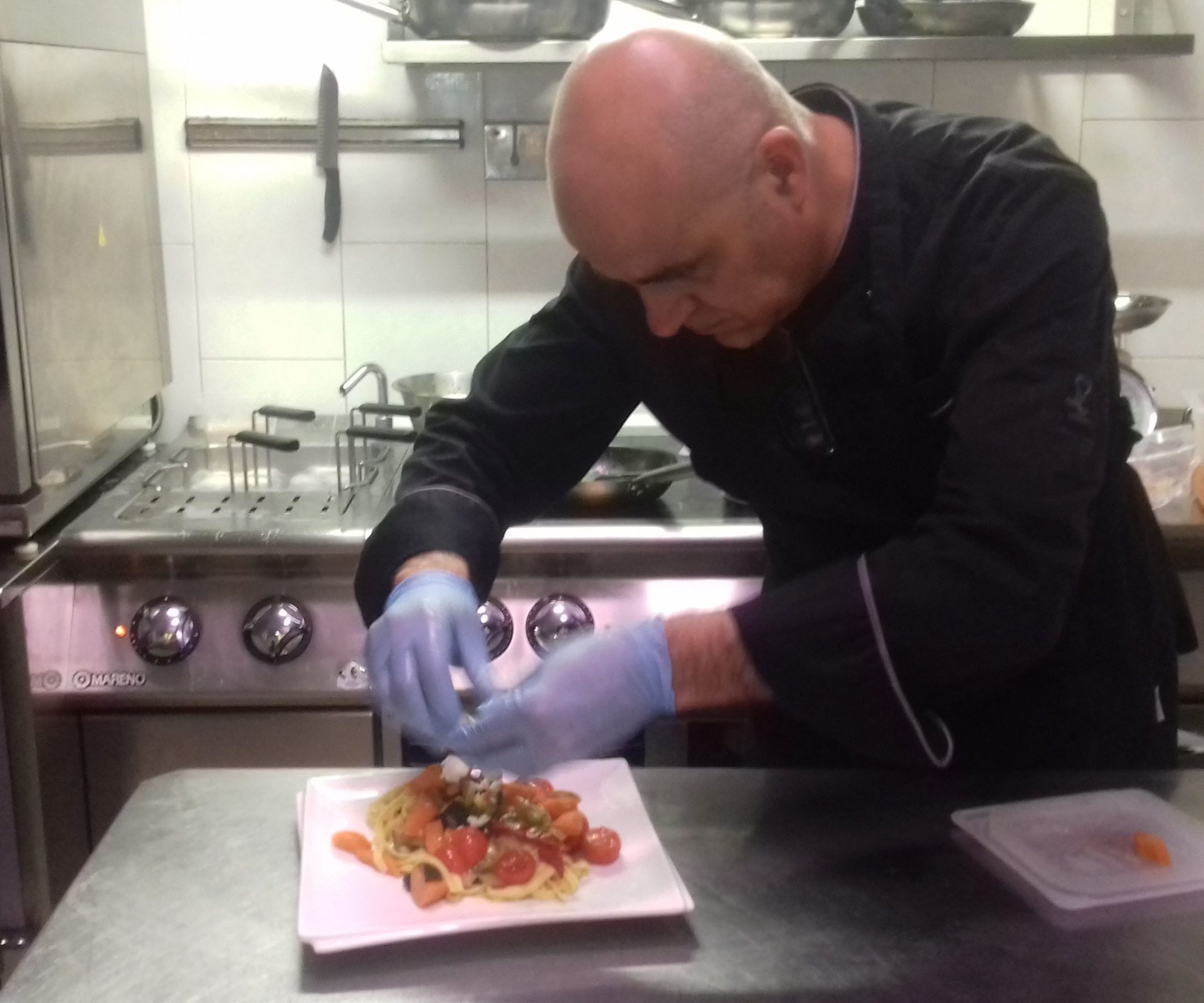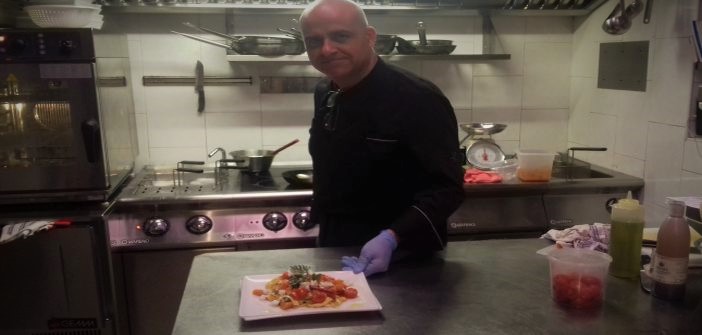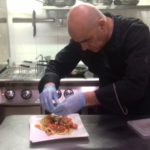Behind the stoves of the restaurant Via Latina in Nice, chef Giovanni Sorrentino engages in social experiments through his cooking.
Inspired by his Neapolitan origins, he aims to awaken the feelings and senses of his customers through food. He hadn’t chosen cooking as a profession, but this passion caught up with him.
When you entered the workforce, cooking was not your main activity. How did you come to be a chef?
My journey is a bit convoluted. Originally, I studied to become a biologist. After my high school graduation, I spent a year in the United States working in a laboratory. But cooking has always been a passion for me. I had to choose between the two, but science never left me. I use it when I cook, to understand what food does to the body. I spent another two years in America working in a restaurant. Then I went to Tuscany, Siena, for 14 years. I tried to return to biology, but I realized that it’s really cooking that makes me tick.
How long have you been living in Nice?
It will be three years. As soon as I arrived, I worked and talked with chefs like David Faure and Keisuke Matsushima. They taught me a lot. They are geniuses who gave me another vision of cooking.

What does your cooking consist of?
It’s a new concept that could be called “therapeutic cooking.” The goal is to improve mental, physical, and spiritual condition. It must first be simple and effective. My cooking is Italian and Mediterranean, based on taste, the flavor of things. I work on the fifth taste sense, Umami, which indeed means savory.
How long have you been engaging in this research on taste?
It’s been 6 months now. It’s thanks to the chefs I met, and the observations I’ve made while working, that I wanted to launch this project. I cook alone, but the idea came from these encounters that taught me a lot. It’s still experimental, but there are already interesting results.
What motivates and inspires you to cook?
My love for people. My origins and my family have helped a lot. I learned to cook at the age of 8 with my mother, who shared anecdotes about her own mother, who cooked very well. I also think of those who can no longer eat, who have lost the taste for it. I see elderly people who let themselves die because they have lost their memory. And I want to try to revive that memory through taste, to give them and all my clientele back their smile.
What’s the next step for your project?
It’s precisely to invest more in people undergoing invasive medical treatment. If all goes well, I will start by talking to them. Discuss their lives, bring up memories if possible. Based on these exchanges, I will prepare meals for them, depending on what they could tell me. And maybe I can give them back the zest for life through my cooking.



